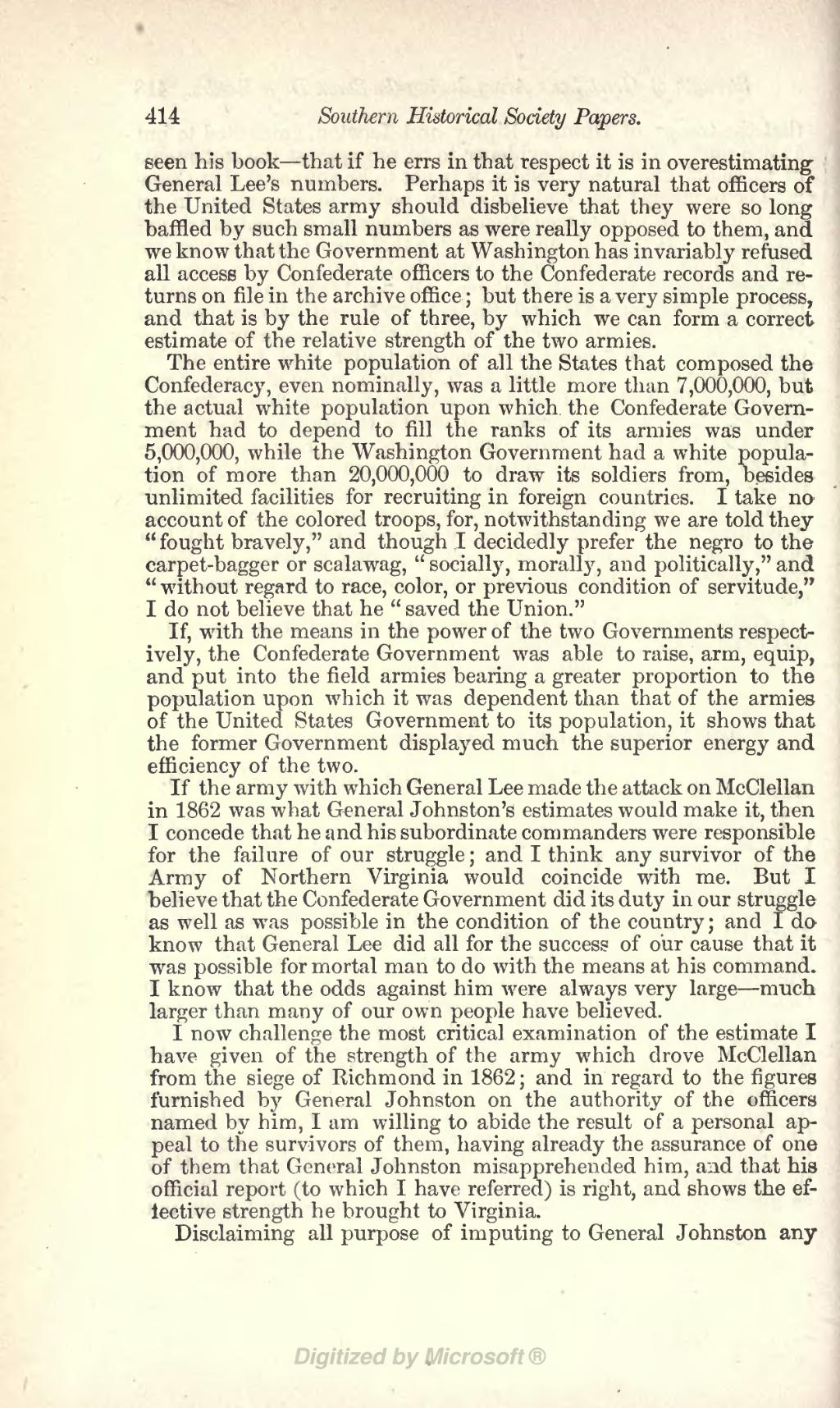seen his book—that if he errs in that respect it is in overestimating General Lee's numbers. Perhaps it is very natural that officers of the United States army should disbelieve that they were so long baffled by such small numbers as were really opposed to them, and we know that the Government at Washington has invariably refused all access by Confederate officers to the Confederate records and returns on file in the archive office; but there is a very simple process, and that is by the rule of three, by which we can form a correct estimate of the relative strength of the two armies.
The entire white population of all the States that composed the Confederacy, even nominally, was a little more than 7,000,000, but the actual white population upon which the Confederate Government had to depend to fill the ranks of its armies was under 5,000,000, while the Washington Government had a white population of more than 20,000,000 to draw its soldiers from, besides unlimited facilities for recruiting in foreign countries. I take no account of the colored troops, for, notwithstanding we are told they "fought bravely," and though I decidedly prefer the negro to the carpet-bagger or scalawag, "socially, morally, and politically," and "without regard to race, color, or previous condition of servitude," I do not believe that he "saved the Union."
If, with the means in the power of the two Governments respectively, the Confederate Government was able to raise, arm, equip, and put into the field armies bearing a greater proportion to the population upon which it was dependent than that of the armies of the United States Government to its population, it shows that the former Government displayed much the superior energy and efficiency of the two.
If the army with which General Lee made the attack on McClellan in 1862 was what General Johnston's estimates would make it, then I concede that he and his subordinate commanders were responsible for the failure of our struggle; and I think any survivor of the Army of Northern Virginia would coincide with me. But I believe that the Confederate Government did its duty in our struggle as well as was possible in the condition of the country; and I do know that General Lee did all for the success of our cause that it was possible for mortal man to do with the means at his command. I know that the odds against him were always very large—much larger than many of our own people have believed.
I now challenge the most critical examination of the estimate I have given of the strength of the army which drove McClellan from the siege of Richmond in 1862; and in regard to the figures furnished by General Johnston on the authority of the officers named by him, I am willing to abide the result of a personal appeal to the survivors of them, having already the assurance of one of them that General Johnston misapprehended him, and that his official report (to which I have referred) is right, and shows the effective strength he brought to Virginia.
Disclaiming all purpose of imputing to General Johnston any
